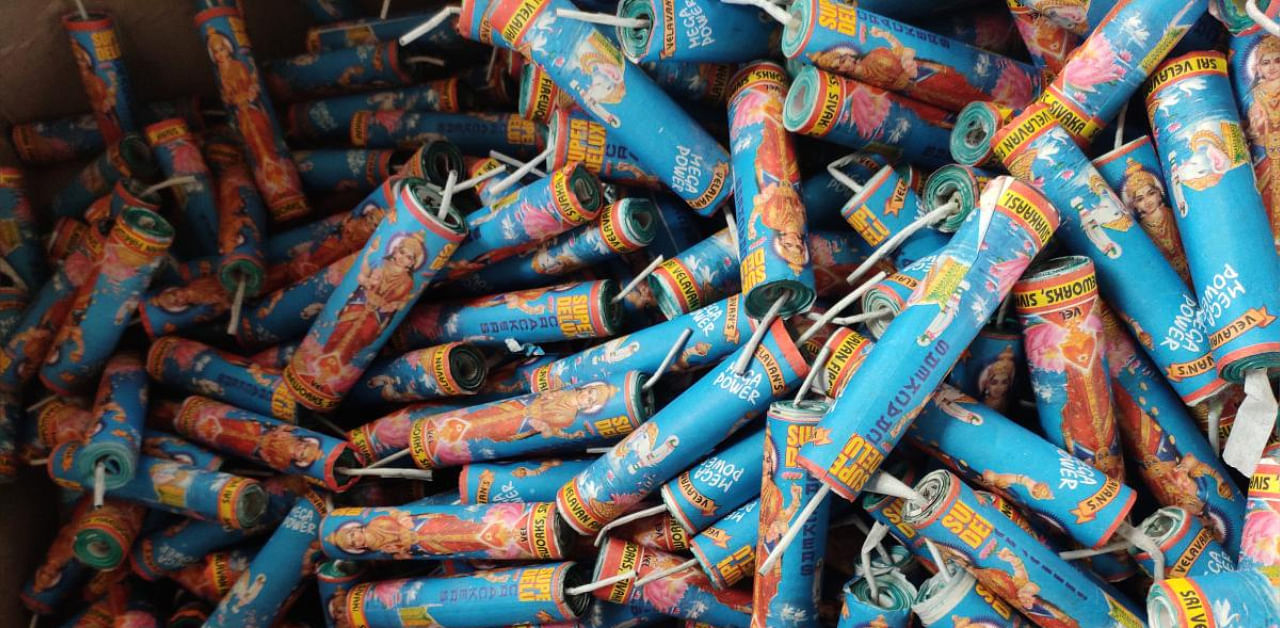
The ban on sale and bursting of firecrackers by five states, the latest being Karnataka, means 45 percent loss of market this Deepavali season for manufacturers in Sivakasi, the fireworks hub of India that accounts for 90 percent of products available in the market.
The loss is not just for the multi-crore fireworks' industry but also lakhs of traders who sell them in every nook and corner of these states during Deepavali which falls, this year, on November 14. Rajasthan was the first state to ban the sale and bursting of firecrackers followed by Odisha, Delhi, West Bengal, and Karnataka, which had been issuing the licence to set up cracker shops till Wednesday.
Karnataka accounts for 15 percent of the market share, insiders said, adding that the fireworks' manufacturers suffered a considerable loss when the state banned Ganesh Chaturthi festivities this year. Industry veterans scoffed at the state governments for imposing a ban “without any credible scientific evidence” on crackers aggravating the spread of Covid-19.
“Instead of every state banning the sale and bursting of firecrackers at the last minute, the government can direct us to shut our factories for good after waiving off all our loans. Why is the industry being targeted year after year by citing one reason or the other? What is the rationale behind the ban?” asked P Ganesan, President of Tamil Nadu Fireworks and Amorces Manufacturers Association (TANFAMA).
Over 80 percent of the products that go out of the factories in Sivakasi carry the “green cracker” tag as they are found to reduce the emission of 2.5 particulate matter by 30 to 35 percent less than conventional crackers, he said. “Why is even green crackers being banned? Already we have lost 45 percent market share and with a week to go for Deepavali, we do not know how many more states will come out with a ban on the sale,” he told Deccan Herald.
The loss for the industry due to the ban by five states and Mumbai city so far is estimated to be anywhere between Rs 800 crore to Rs 1,200 crore, besides the financial losses it suffered during the Covid-19 lockdown. The industry, which is estimated to be worth anywhere between Rs 3,000 crore to Rs 6,000 crore, has been in a state of perpetual crisis for the past five years.
The last-minute ban, which comes at a time when over 90 percent of the goods have reached the dealers, has put the fireworks' manufacturers and lakhs of labourers dependent on them in a fix. With over 45 percent of products sent by them stuck with dealers, the production for next Deepavali, which begins right after the festivities end, will not resume.
If the production does not begin a few weeks after Deepavali, over four lakhs labourers who are directly benefited by the industry will be rendered jobless. Already, the labourers were put to severe inconvenience this year after fireworks' units downed their shutters for 55 days owing to the Coronavirus lockdown.
Fireworks' manufacturers begin production based on orders from dealers across the country. “If dealers do not sell the stocks that they have, how will they pay us. Why will they place fresh orders when they have a huge stockpile? We cannot begin production unless we have orders,” a fireworks' manufacturer said.